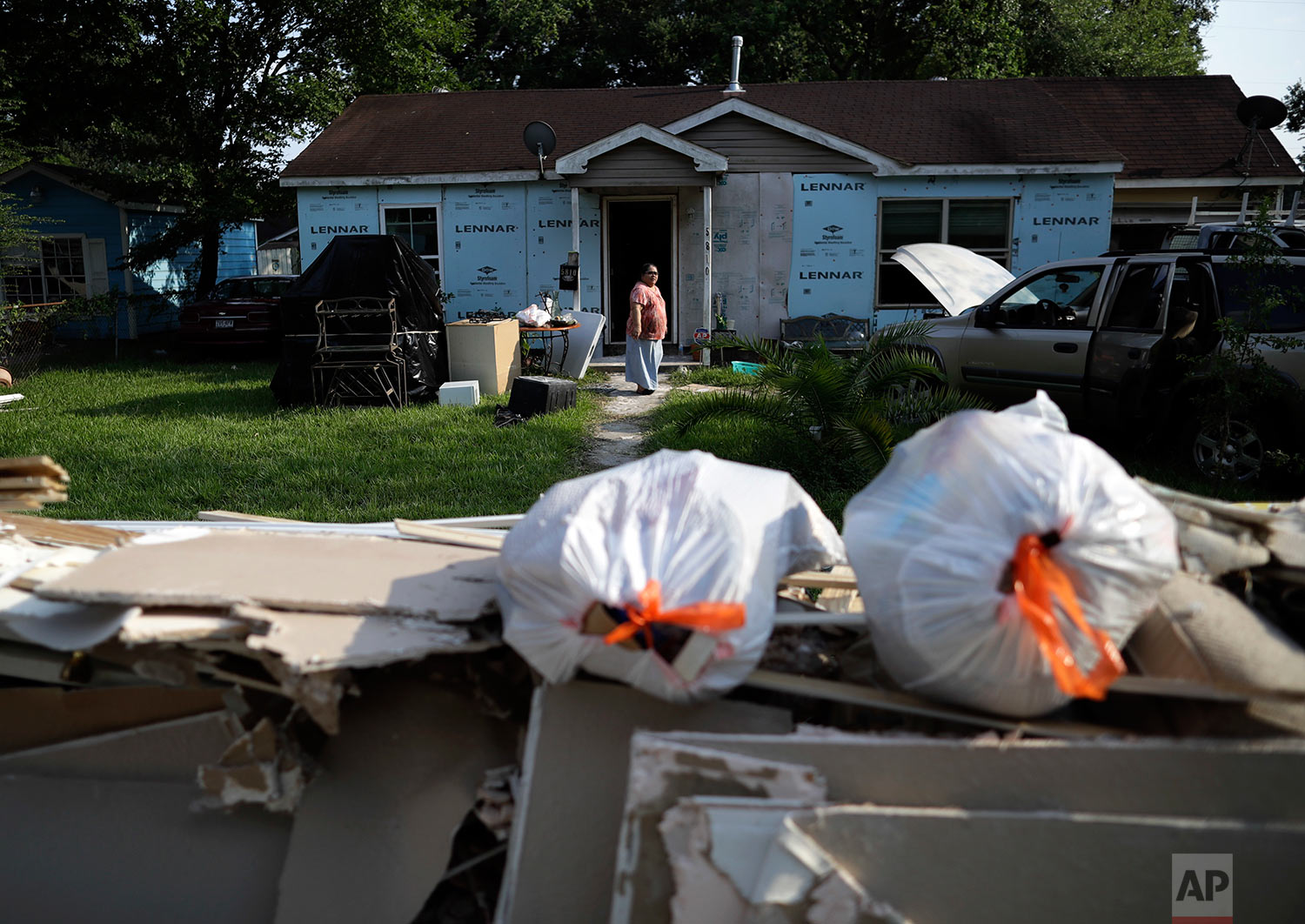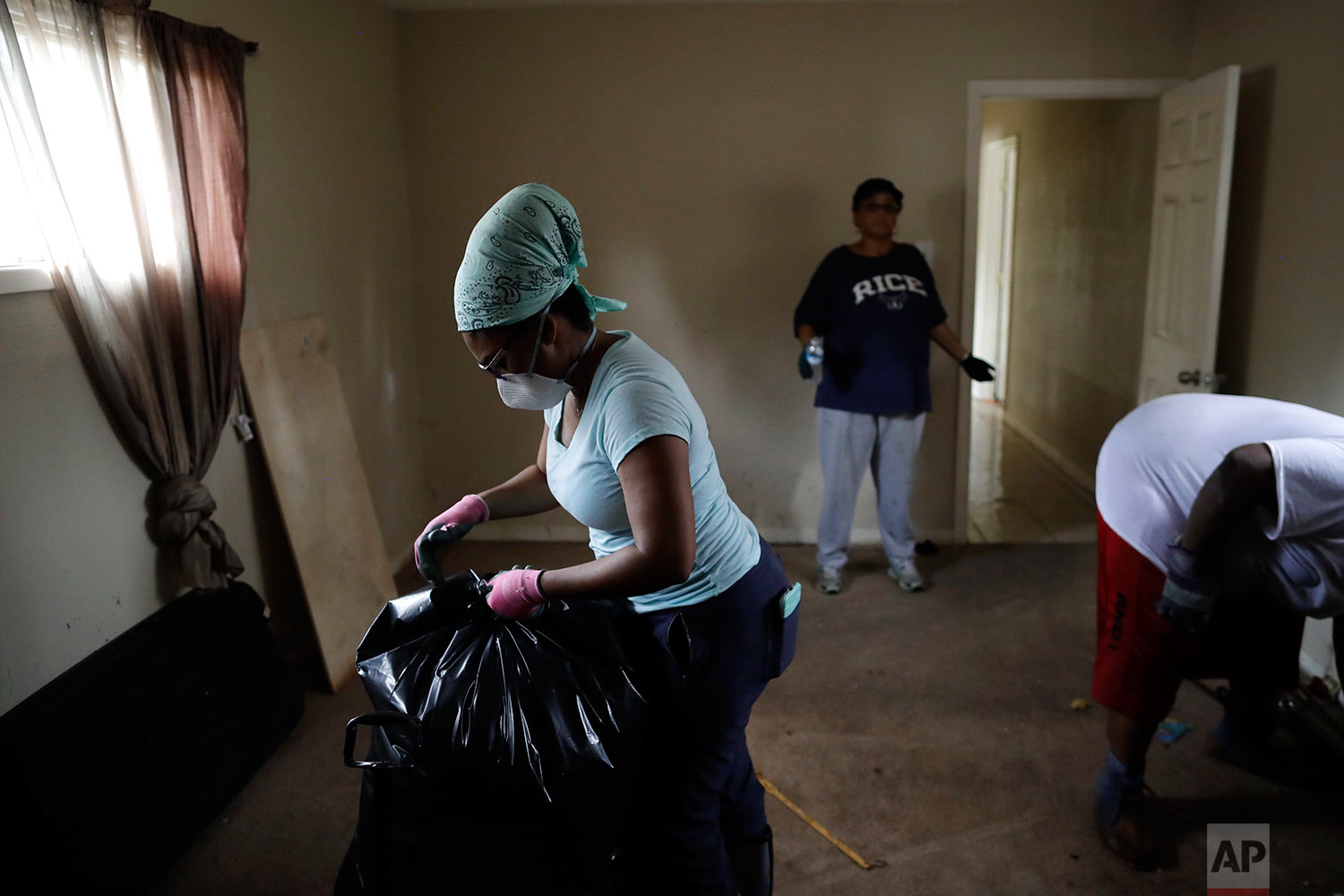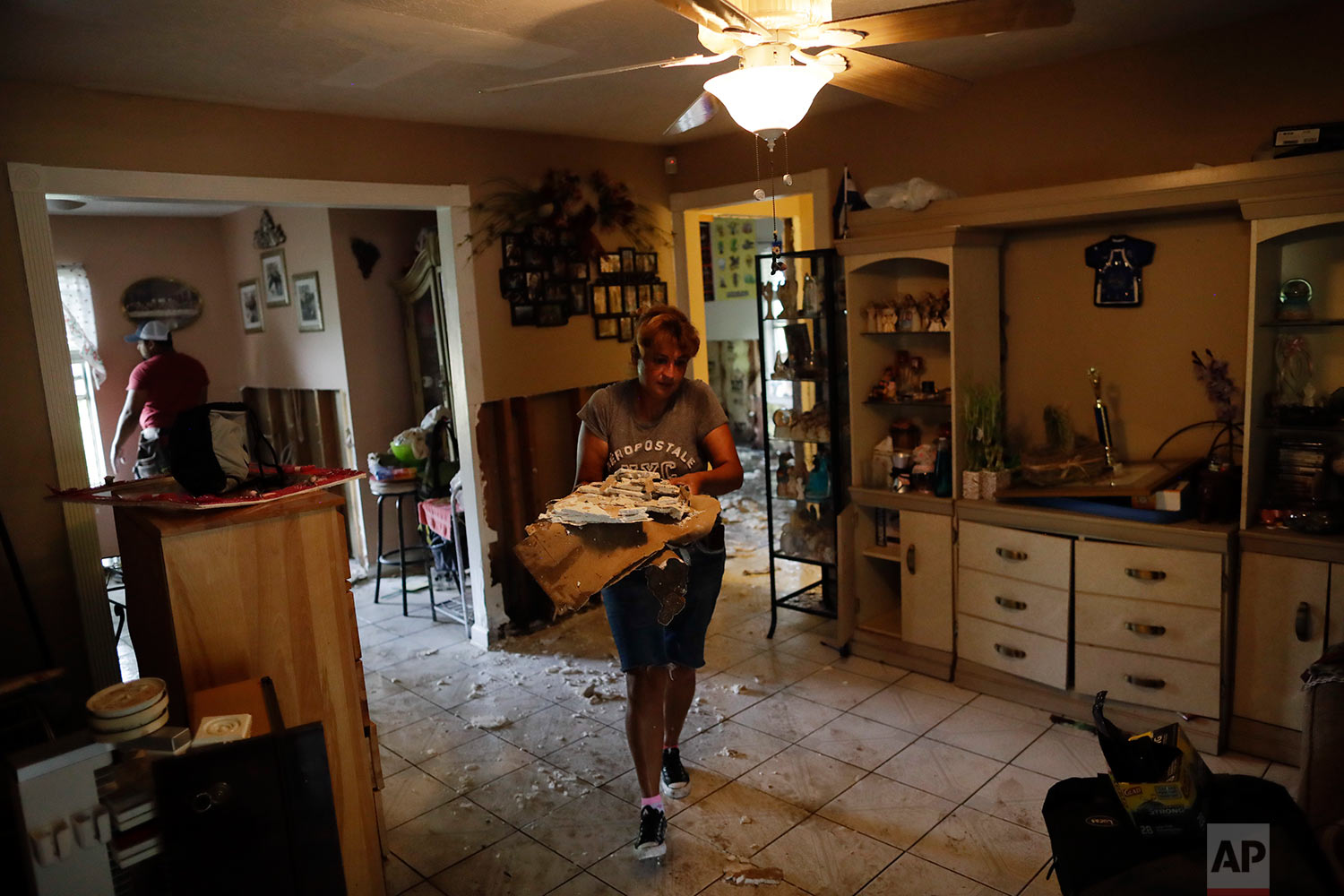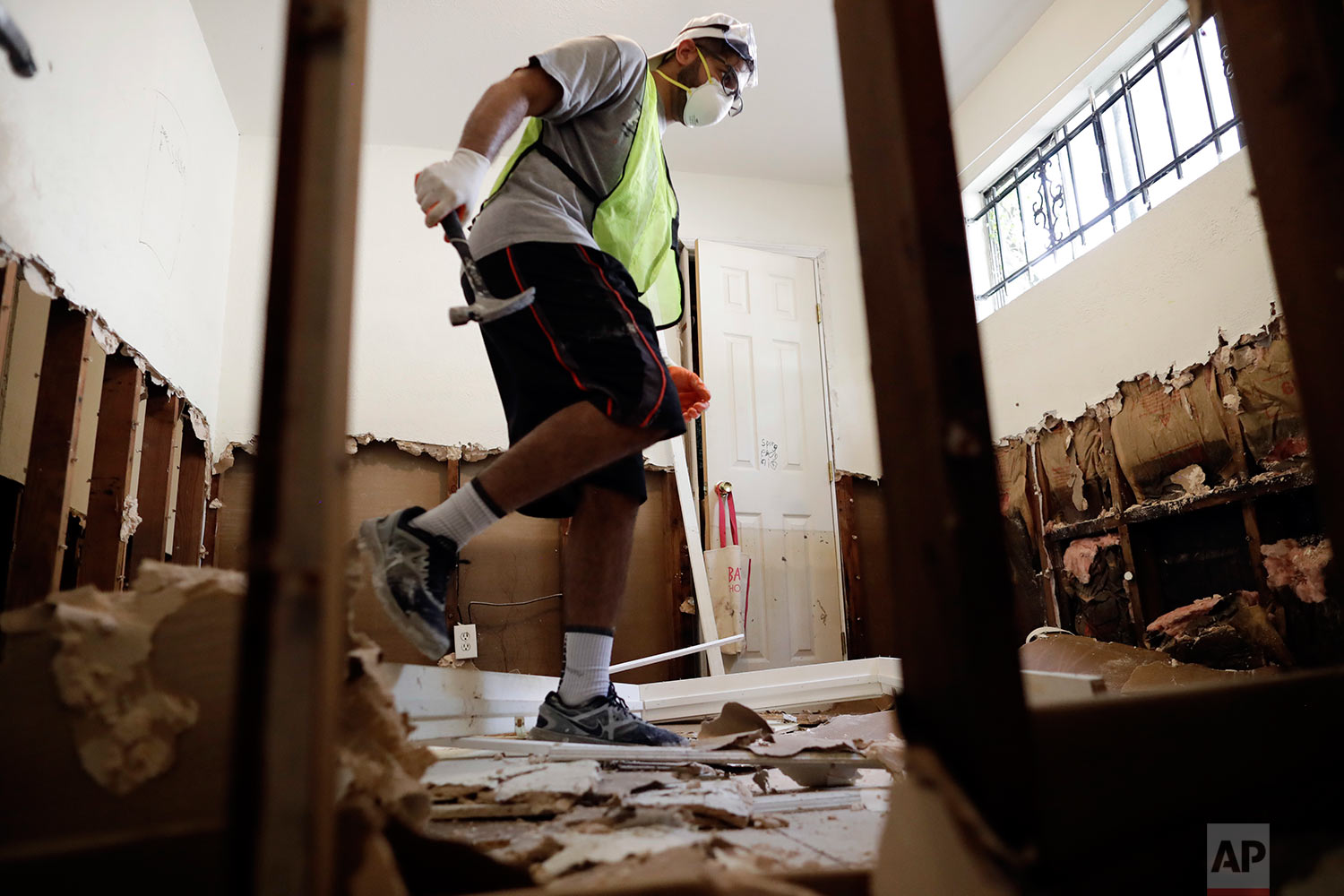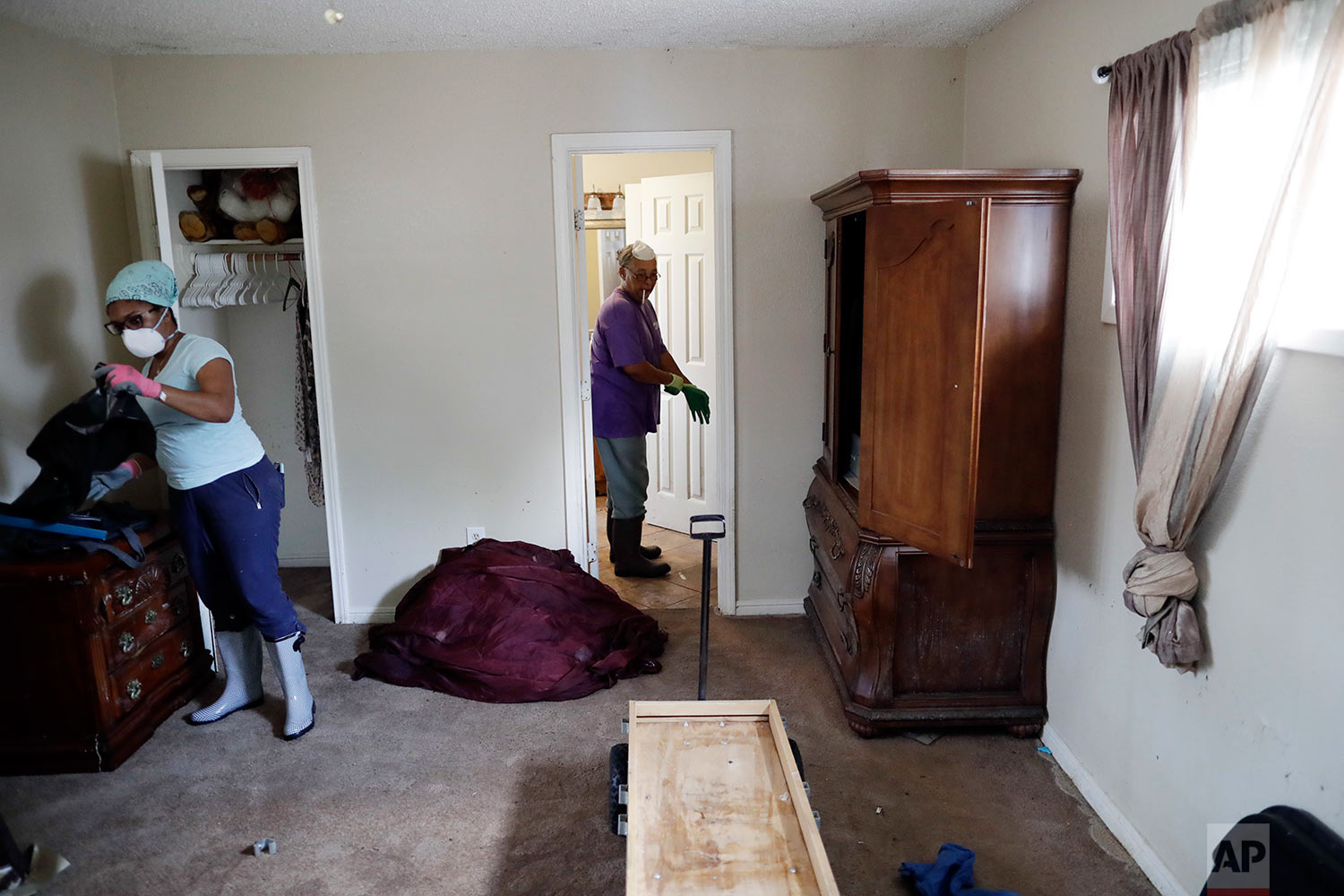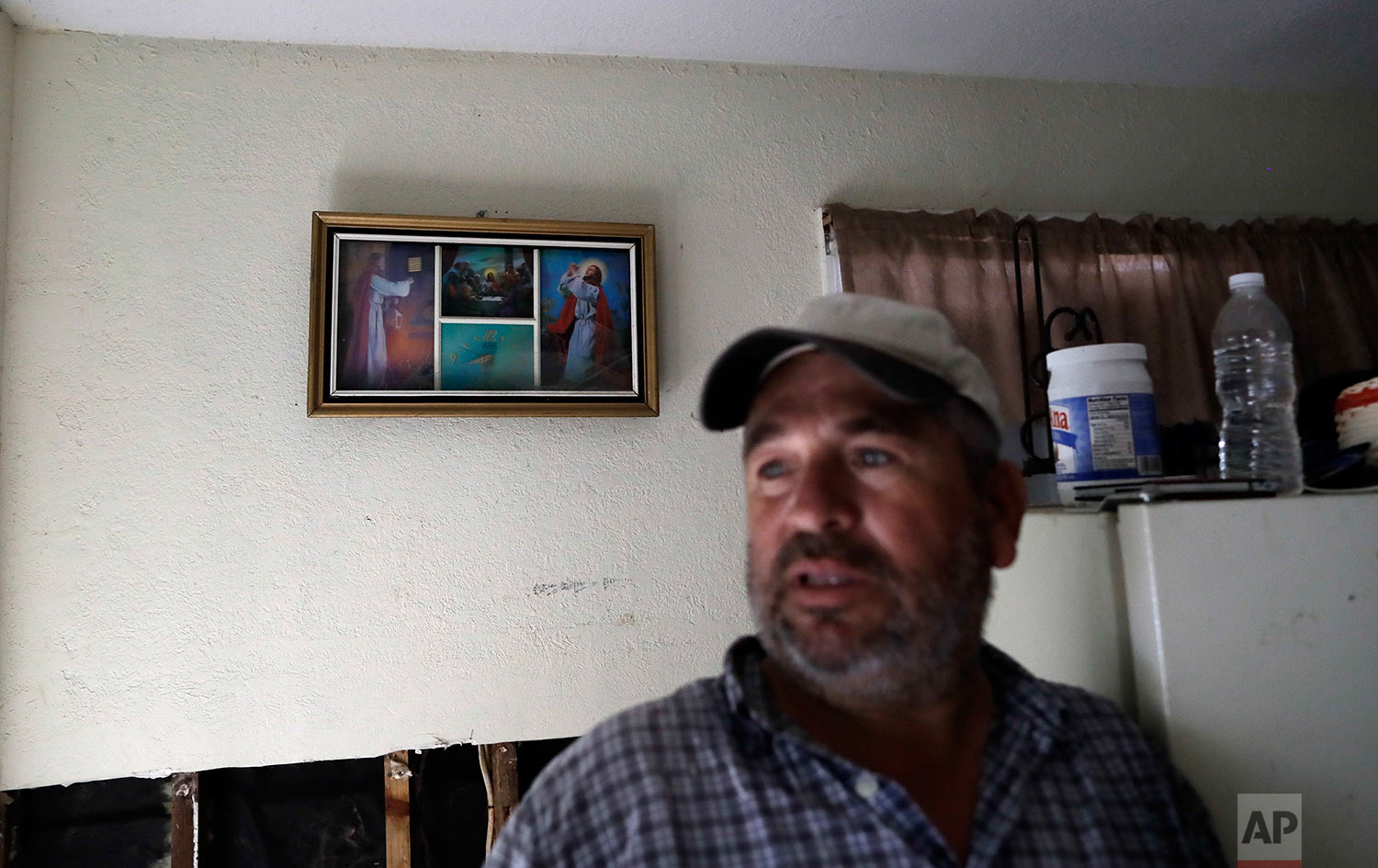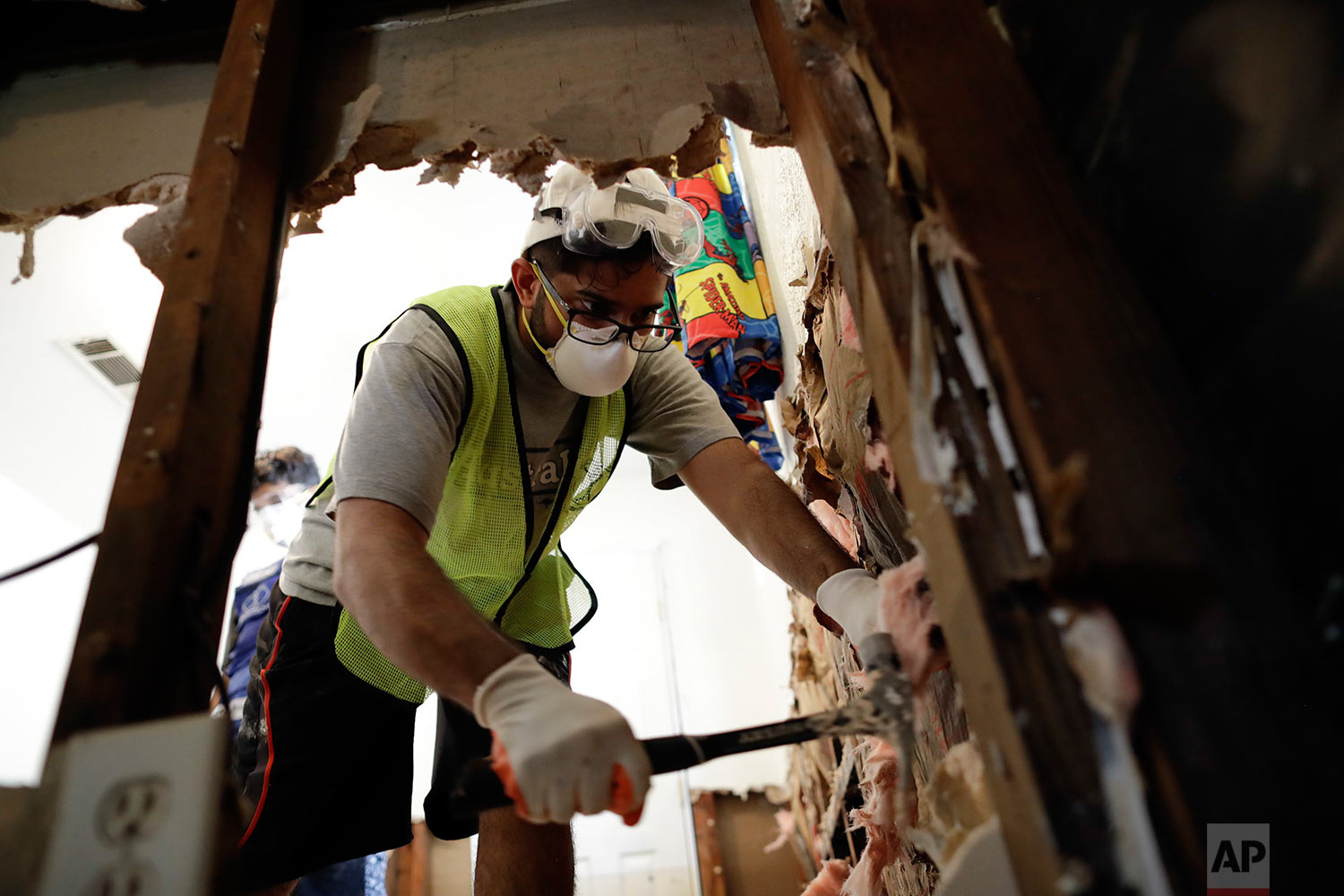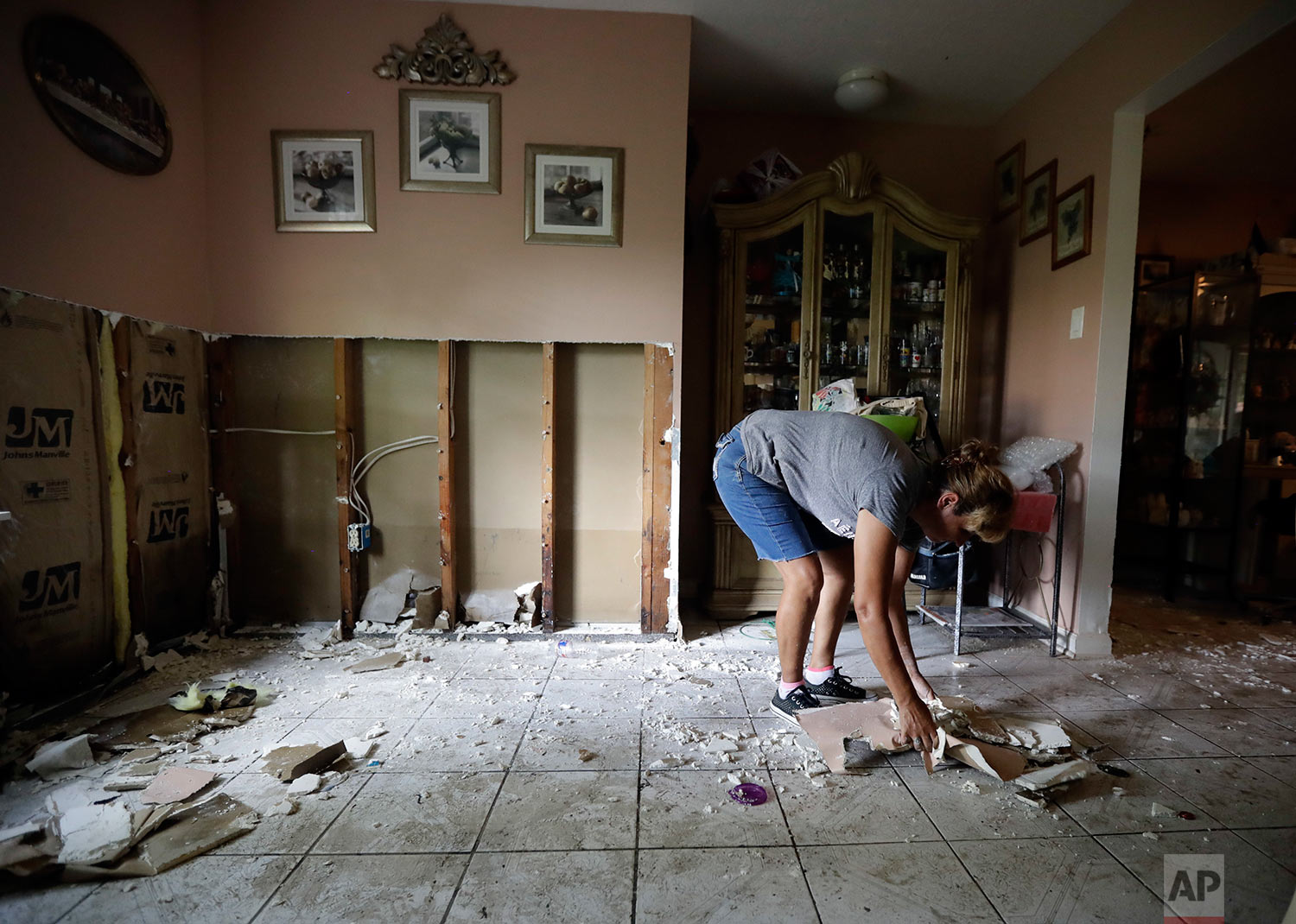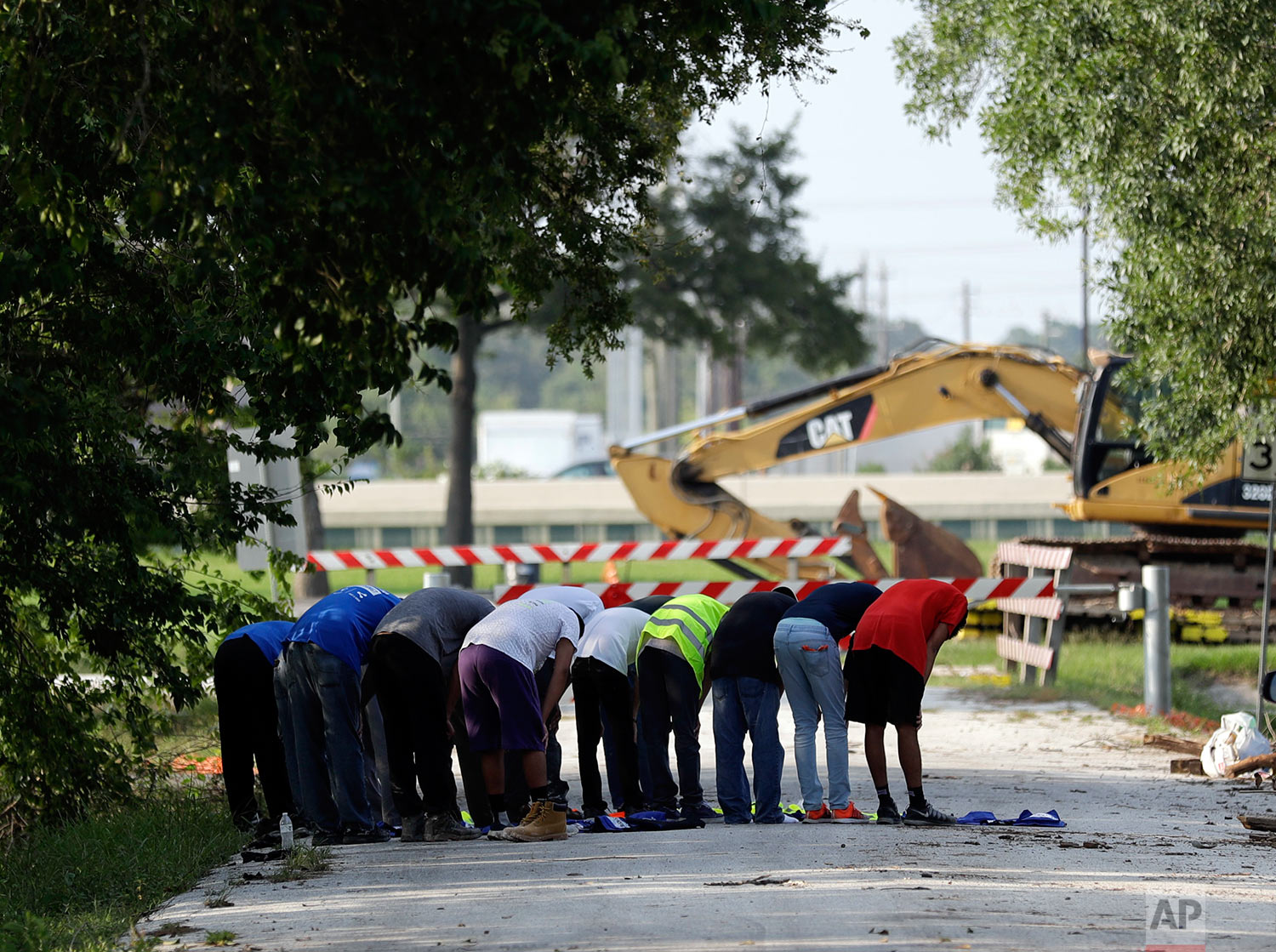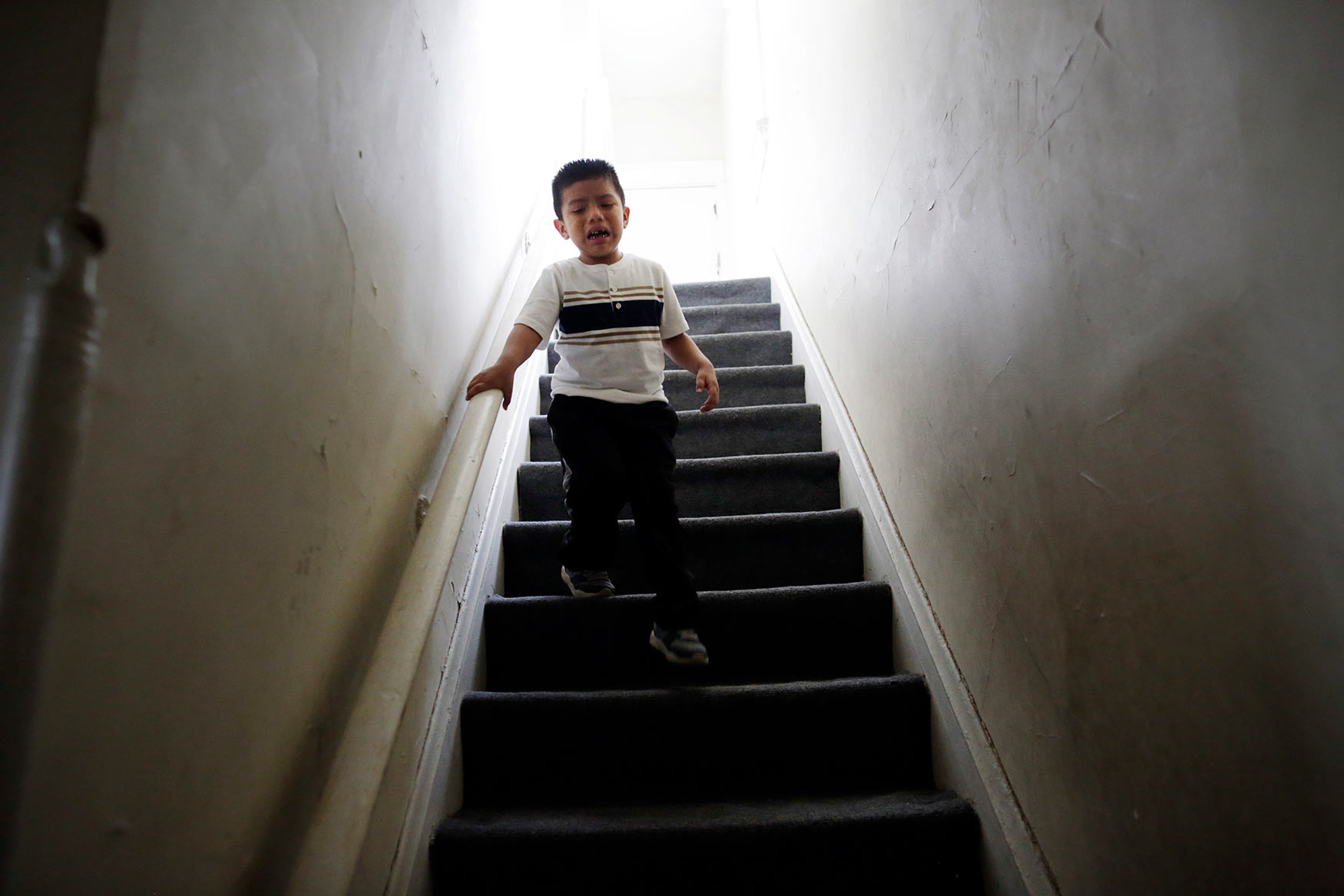Working poor exhausted after Harvey
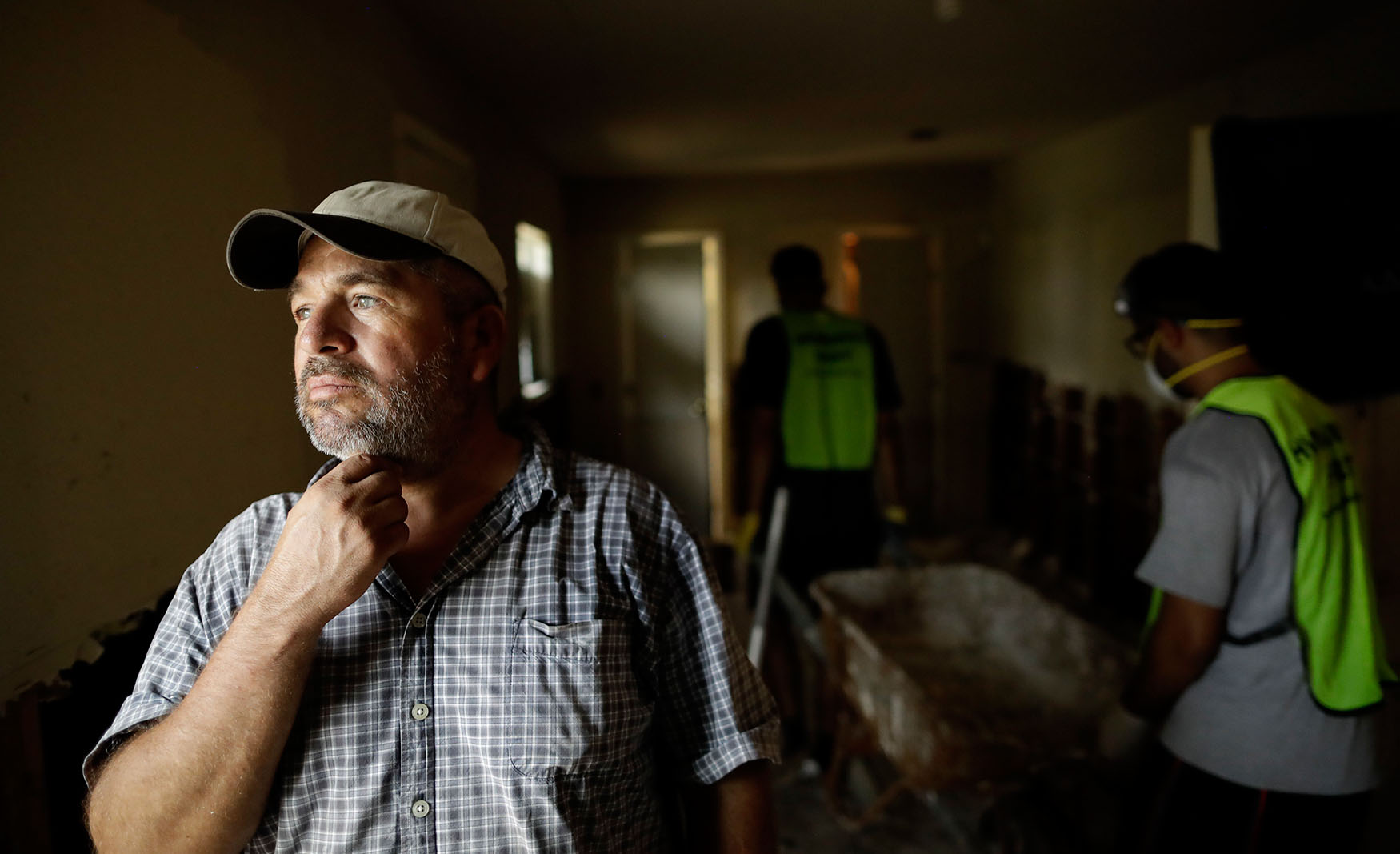
Like many of his neighbors on flood-ravaged Minden Street, Lino Saldana knows if he doesn’t work, he doesn’t get paid.
As volunteers helped him rip out waterlogged, moldy drywall and carpet from his wrecked home, adding to piles of debris along the street that have grown to 5 feet (1.5 meters), Saldana was asked if he will be able to make the next mortgage payment.
“Oof,” groaned the 50-year-old construction contractor who, for now, can’t go to any jobs because his vehicles are flooded.
Harvey’s epic 52 inches (130 centimeters) of rain didn’t discriminate between rich and poor areas. But in working-class neighborhoods , where many live paycheck to paycheck, the cleanup and recovery could be an even tougher slog.
“If you don’t have any money and you’ve lost your car and your ability to go to work, how do you start again?” said Cathy Crawford, a real estate agent from Houston, who was on Minden Street to help one of her clients pull out soggy drywall and ruined furniture.
Those who struggled before the storm will have an especially difficult time bouncing back. Disasters such as Harvey throw already disorganized lives into total chaos.
Take Jamica Batts. She’s 18, lives in a nearby motel and used to work at Walmart part time, until she gave birth to her premature baby two months ago. Now she’s being evicted, along with her little boy and her brother, from their motel room that sits in the shadow of Interstate 45. She and her brother had a squabble with hotel management before, during and after the storm, and now they’re headed to a Red Cross shelter. It’s their hope that someone will help them, since the one car they shared was flooded. She’s not working and her brother is a self-employed music producer.
“I don’t know if we qualify for FEMA,” she said, rinsing off a pacifier in the motel sink and popping it into her baby’s mouth.
At the same motel, 38-year-old Marcus Hunt was smoking a cigarette in the parking lot on Monday. Before the storm, he had lived in a house and was scheduled to move to a different rental Sept. 1, but the storm hit and his new house was no longer available. His old place was damaged. So now he’s staying at the Texas Inn with his girlfriend and their baby, at least until his money runs out.
“Right now, I don’t know left from right,” said Hunt, who is on disability and is now worried FEMA has rentals “locked down,” which would mean they aren’t available to regular renters like himself. “I’ll probably have to go to a shelter.”
Experts who have studied the poor and the vulnerable during disasters say it’s usually difficult for those groups to evacuate before storms hit. Where do they go and with what money? Recovery also is often slower and more fraught with pitfalls.
Many of the blue-collar residents on Minden street and its surrounding neighborhoods scrimped and saved to buy the modest, one-story, wooden homes that have a median price of $60,500, significantly below the Texas state average of $152,000.
Located within a stone’s throw of both Interstate 610 and the Hunting Bayou, the area was inundated with several feet of water, which has given way now to a smell: a mix of wet wood, mildew and the sickeningly heavy stench of week-old garbage.
It is not just money and labor needed in communities like this, it is information. In the aftermath of a storm, people must navigate complex insurance paperwork and contact FEMA for assistance. Some of the homeowners on Minden Street actually have flood insurance, because it’s located next to a bayou with a history of flooding. The city was scheduled to improve the drainage flow there during a multimillion-dollar construction project in August.
But how much the insurance will pay, and when, is anyone’s guess. Will the assistance come fast enough to replace lost wages? Saldana doesn’t have savings to fall back on. And 32-year-old Nicole Hays rents her home, and has no insurance.
She and her boyfriend and her two children moved to the street from Lansing, Michigan, last year. Her boyfriend delivered pizzas for a living, but now he can’t even do that because their one truck was submerged by floodwater.
“We’re just waiting on FEMA now,” she said. “This is all new to us. I would rather deal with ice storms or snowstorms. In those, you don’t lose everything.”
Many people on Minden Street rode out the flooding in their homes, only leaving when it became too dangerous. The stress of that and financial anxiety have left them feeling exhaustion in every bone of their bodies.
“We don’t have time to process the tragedy or grieve,” said 52-year-old Sandra Tucker. “We’re too busy.”
Her husband, 57-year-old Floyd Tucker is an auto technician. He hasn’t been able to work for days, and likely won’t be paid for his absence.
“I’m just so tired, I’m drained.”
He stared at the puddle of tea-colored floodwater pooled in their silver Toyota and fired up the wet vacuum to suck the moisture out of the car, knowing that the disaster for Minden Street, and Texas, has just begun.
Text from the AP news story, Working poor on Minden Street exhausted after Harvey, by Tamara Lush.
Photos by Gregory Bull
Visual artist and Journalist

